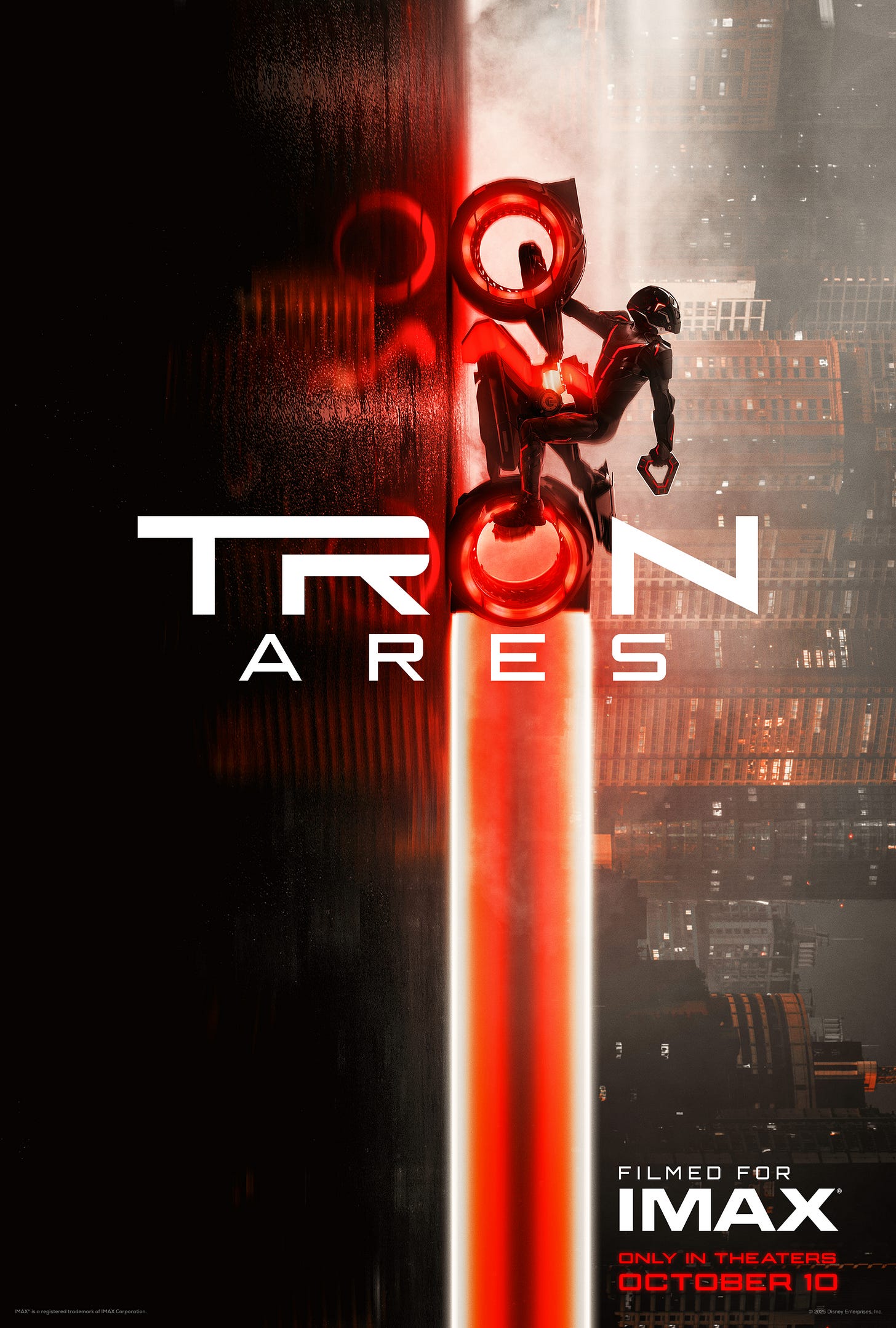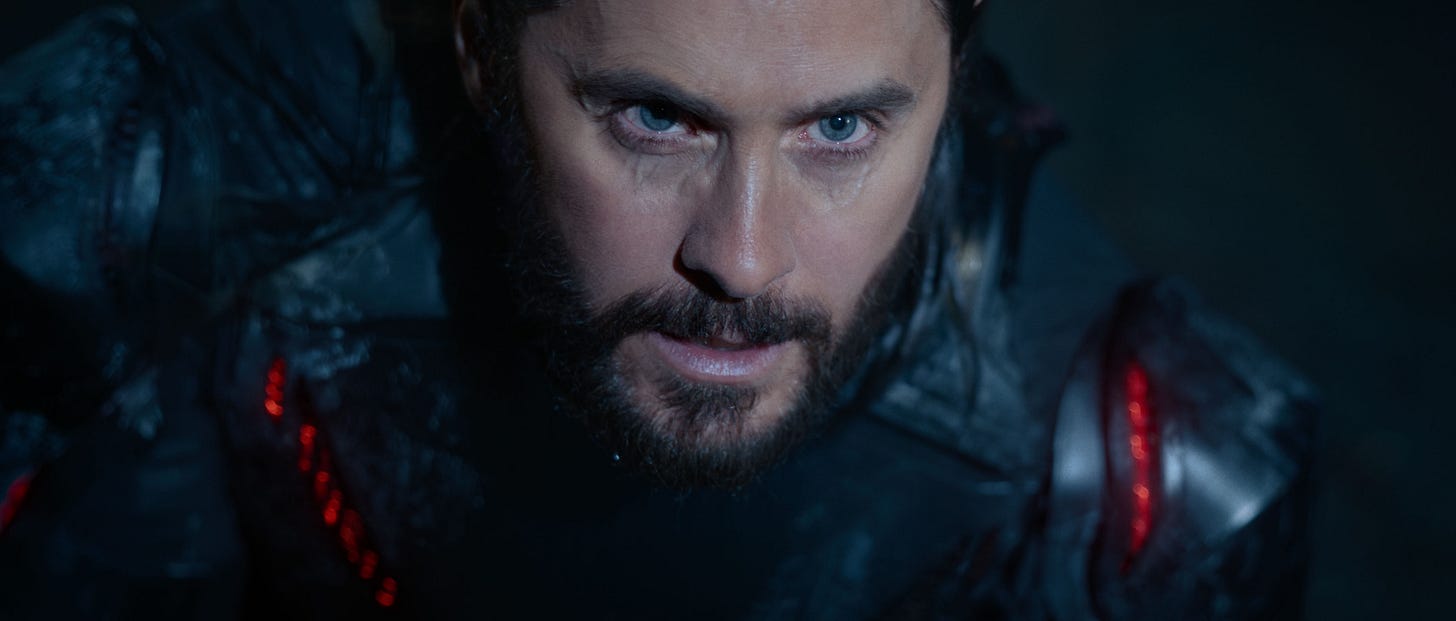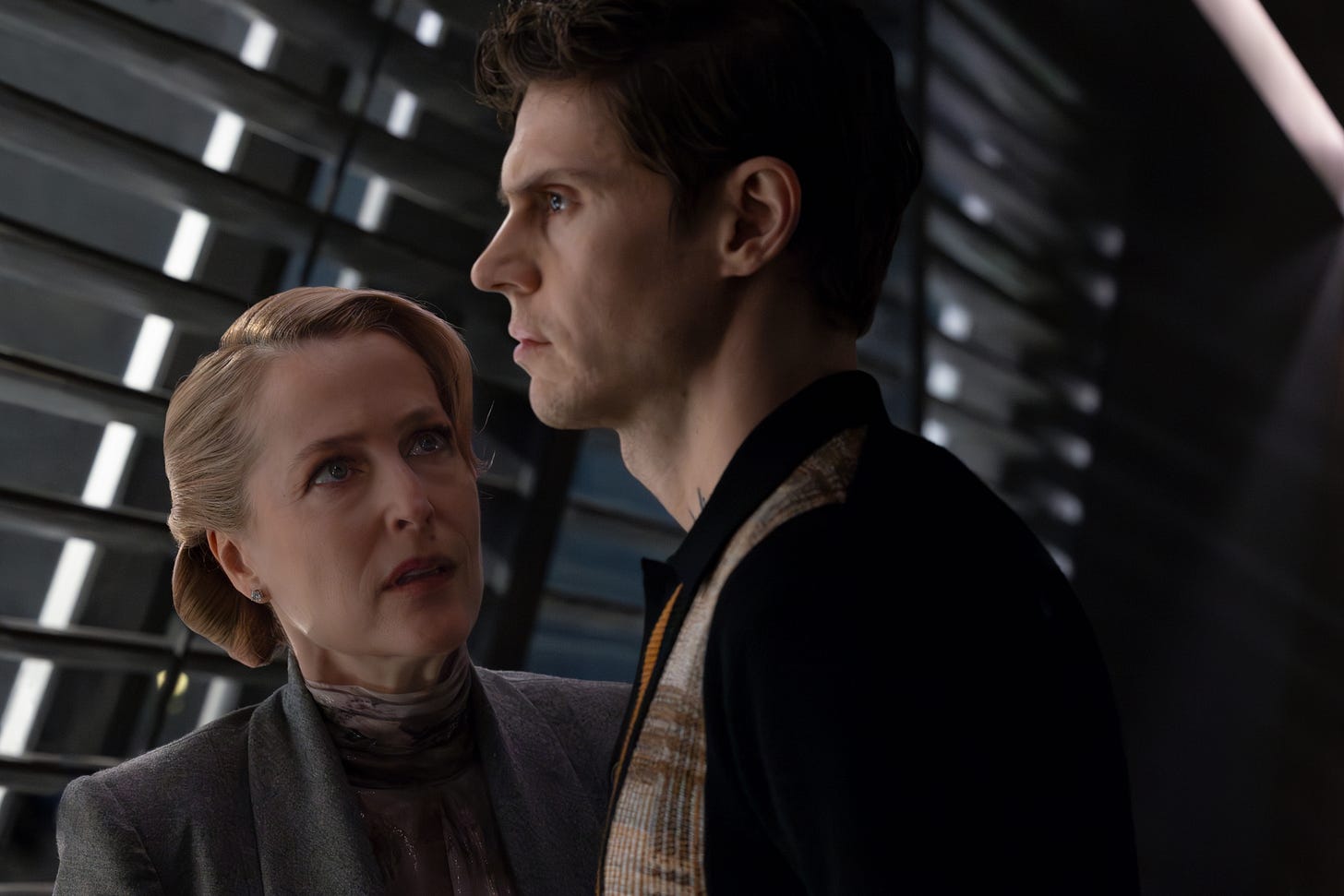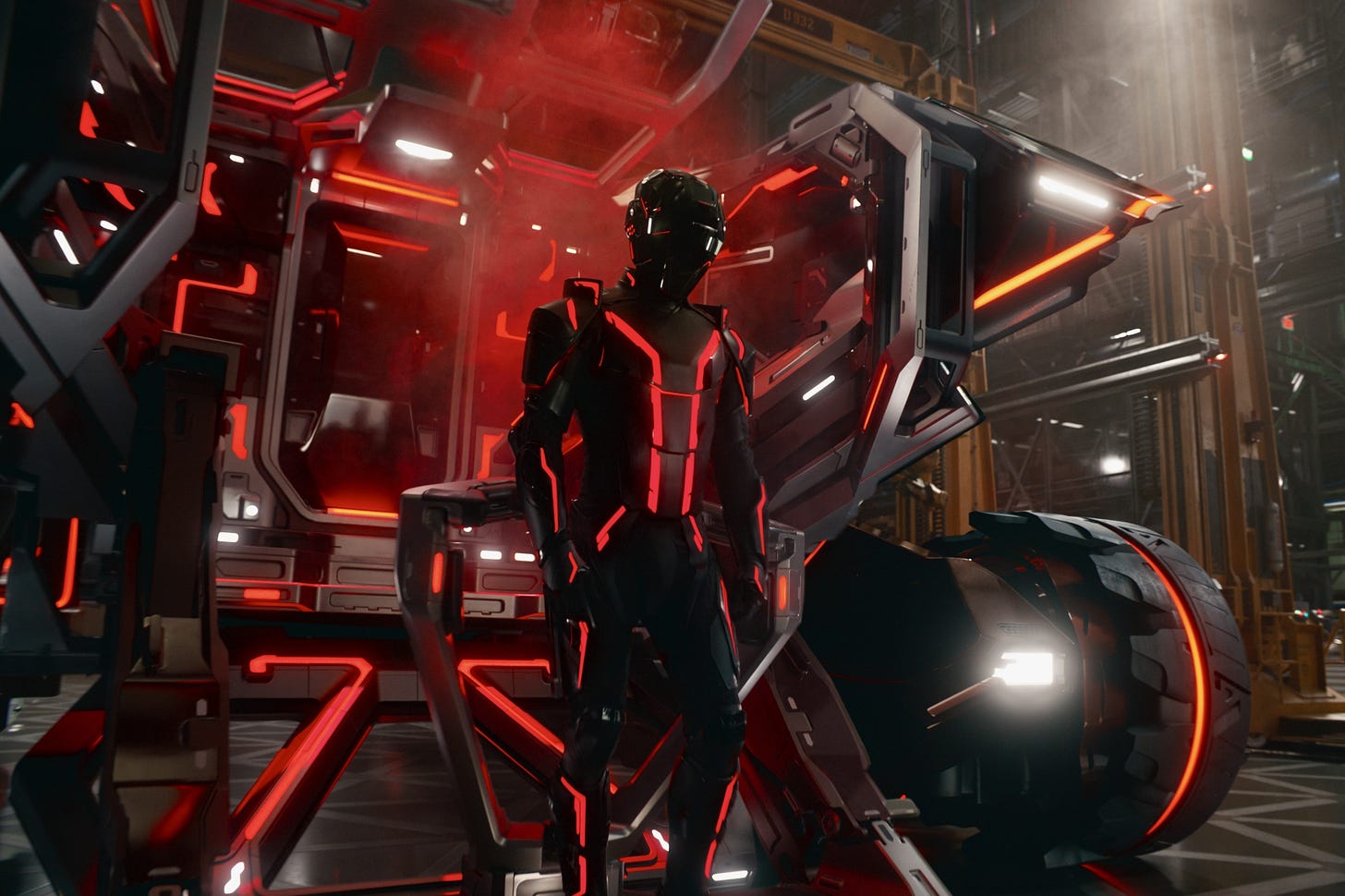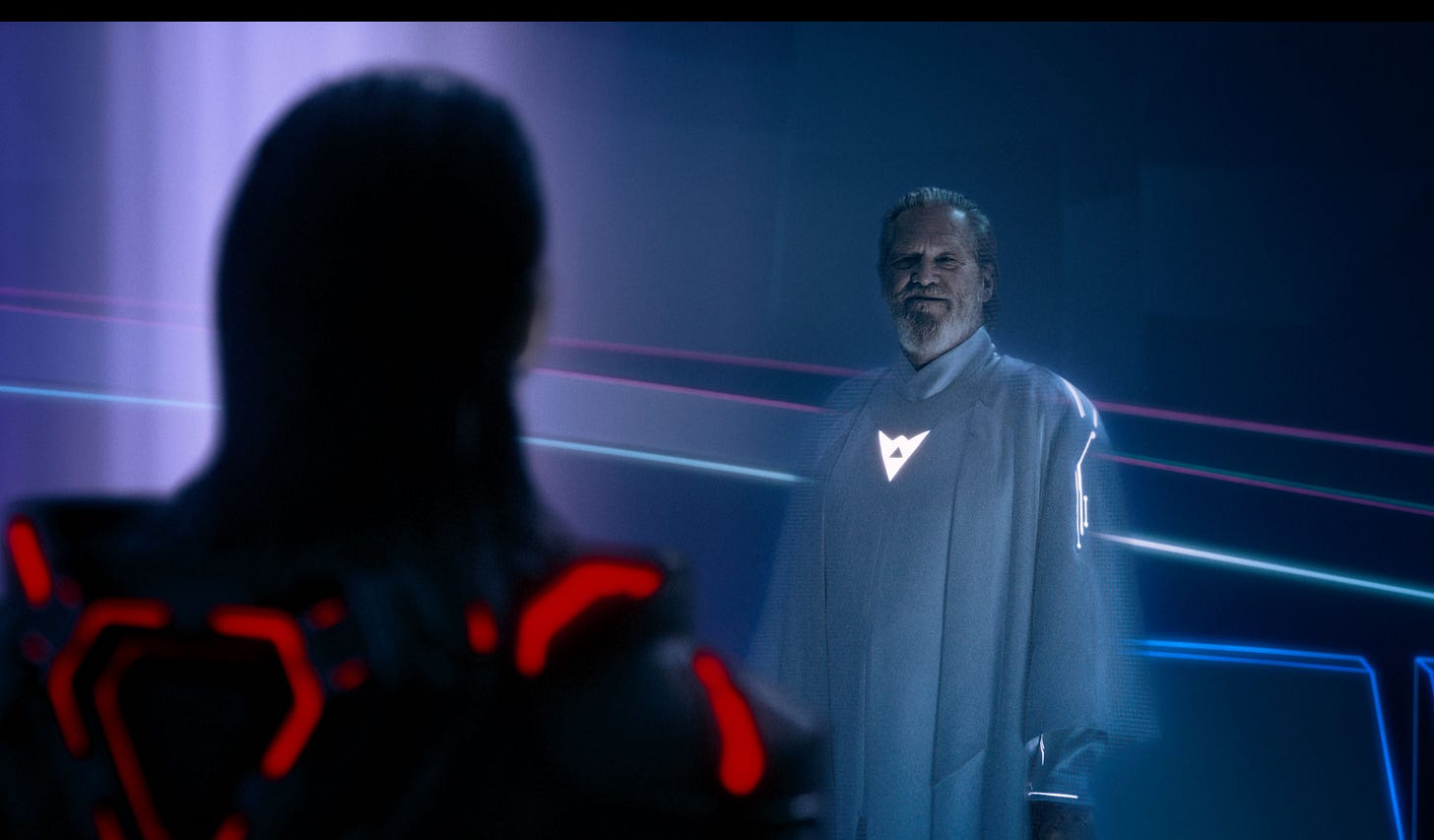Tron: Ares (Disney, PG-13)
Encom and Dillinger Systems are back at each other’s throats. Can the Grid’s return to the big screen reignite a cult-classic sci-fi franchise?
When I say Tron: Legacy is a perfect movie I know I have to back it up. First, let me make one thing clear: I didn’t say it is the perfect movie. This is an important distinction. The argument for a perfect movie will always devolve into a shouting match over objective quality, something I’m still unsure truly exists. I’m not interested in having that argument. I contend Tron: Legacy is a perfect movie. Take into account all of the things a movie can be. Take into account the limitation film presents, as a medium. Time, budget, pace, exposition, dialogue. All organized a million different ways, emphasis given to one over the other. It’s a balancing act. And a difficult one. Some movies nail a few aspects but fall short on others. Some films go all in on one or two aspects and fully neglect the others. Tron: Legacy is fully aware of what it is, spends very little time getting you up to speed, and then maintains said speed through excellent pacing. The slower moments give you respite from the pulse-pounding action. The score sits strapped to your back like a parachute instructor, yanking the cord only when appropriate, but allowing the velocity of Daft Punk’s best work to wash over you.
I love Tron: Legacy. Without remorse.
So you can imagine, when Tron: Ares got announced, I held my breath for years at the idea of another trip into the Grid. Add the confirmation of Jared Leto in the lead role, quite early in the process, and the tension in my lungs became nearly unbearable. Leto is one of those actors I find myself having a hard time nailing down. He was incredible in Dallas Buyers Club and Requiem for a Dream. His detached and egotistical role in Blade Runner 2049 felt like the perfect casting. But I should also make it clear, I don’t really think his shortcomings, or rather his poorly performing movies, are a clear indicator of his flawed performances. His Joker didn’t get enough screen time to give anyone a real grasp of what his rendition would have given us. Sony’s Morbius, a movie I spent an entire review trashing, certainly can’t be solely blamed on him. Even though I wished, at the time, I could. The man has won an Oscar. He’s got the talent. Still, his attachment to a franchise I adore so deeply gave me significant pause.
And there is the second stressor. Tron: Legacy left the door open for a sequel, but Tron: Ares appeared, in its marketing, to be relatively unrelated. Why? We’re Garrett Hedlund and Olivia Wilde busy? We’re they going to appear as cameos? For a movie I was so excited about, I knew frighteningly little about the “why”. Why did they decide to come back?
Tron: Ares takes place years after Legacy. Opening with a similar black-box newscaster expositional intro that details what has happened since we were last familiar with Encom, the tech and video game company started by Kevin Flynn. Sam Flynn, protagonist of Legacy and son of Kevin Flynn has left Encom. Two sisters, Eve and Tess Kim (Greta Lee and Selene Yun), took over and have carried the company to new heights. Meanwhile Dillinger Systems has returned to prominence with Ed Dillinger’s grandson Julian (Evan Peters) at the helm. The rise of AI is mentioned, with Dillinger Systems pushing AI in the world of defense tech and the Kim sisters hoping to leverage the technology to lift humanity. All good place setting for an interesting story. Then we are introduced to Ares.
Ares is the MCP of the Dillinger Systems Grid. The last time a Tron film mentioned a Master Control Program was the original in 1982. Color me surprised. In three minutes of film, Tron: Ares illustrates what Ares is and how he was made. A brutal gauntlet of combat, code injection, correction, derezzing, and reconstitution. Ares is a Program forged through trial. Legacy made a solid case for the derezzing process being a painful one. Programs never endure it quietly. Here we see Ares die again and again. His shrieks of pain echoing each time he falls. Then, the film does something the franchise has only done once before, it brings a program into the real world.
The core plot of Tron: Ares is centered on an arms race between Dillinger Systems and Encom to find what’s called the Permanence Code. See, while Julian Dillinger does his demonstration, 3D printing an APC and Ares in front of a room full of generals and influencers, he obscures the fact that his Grid-printed hardware only has a 29-minute half-life. When the timer is up everything crumbles. What follows is a fast-paced sprint to a world where one of these tech giants can bring anything into existence at the tap of a button. Ares is aimed at capturing Eve Kim. But Ares has a problem. He’s starting to exhibit signs of consciousness. Emotion. Quickly, what appears to be an easy snatch and grab for Dillinger Systems becomes a hunt to wrangle a rogue Program.
I will say, the balance this strikes with time on the Grid and in the real world isn’t exactly what I wanted. Tron: Legacy enters the Grid about 20 minutes in and only leaves the grid in the final scene. Ares runs a 60/40 split. But while I may lament the limited time in one of the cooler sci-fi spaces in the last 15 years, I understand limiting Grid time as a means of budgetary limitations. Whether or not I find it excusable for a company like Disney to use budget as an excuse is a completely different argument. Still, Ares uses its divided settings well and frequently utilizes the “meanwhile back at the ranch” format of story compartmentalization with an even and meticulous hand. It simply must be stated, the scenes on the Grid, in this movie, feel amazing. During a high-speed pursuit on a waverunner deeply reminiscent of a Wipeout ship from the Psygnosis game franchise, I leaned over to my buddy, unable to remain silent, and said, “I don’t know man, this fuckin’ rules.”
Because…well…it does.
Jared Leto is really good in this movie. Which may be a boring sentence, I fully understand. But, standing in the foyer after the credits ended, I found myself struggling to articulate my thoughts with any more detail. I expected him to be worse. Truly. But he simply crushed his role as a tormented machine. The rest of the cast also plays to their roles really well. If you are looking for an Oscar performance in a Tron movie you’ll be disappointed. But if you are hoping for acting that stands beside over the top visuals and action well, you are going to find plenty here. Evan Peters is building something as Julian Dillinger. Ares is certainly building to something too, with a post credits scene that caught me delightfully off-guard. Jeff Bridges makes his cameo appearance, as he spoiled last year in an interview. But rather than put him in the center of the film as the master user, the majority of our experience is on the Dillinger Grid, Director Joachim Rønning makes an extremely creative choice. Honestly, a very inspired choice. Painting the world of Tron as having a few tricks left up its sleeve. It also can not go unstated that the cinematographer responsible for the look of this movie is Jeff Cronenweth, LONG time collaborator of David Fincher. If you like the way Fincher’s films look, its likely because Cronenweth has been sat behind the camera. I caught myself gawking at shot composition far more often than I expected. Then I saw Cronenweth’s name in the credits and everything made a lot more sense. He does excellent work.
I came into Ares with my expectations low. Partially because I had a wavering faith in Jared Leto, but also because I came across a TikTok user who claimed the movie was so bad they were going to act like it didn’t even exist. Here’s my take: That guy is full of shit. You couldn’t possibly think this movie is that bad. And while I have already made it clear, I am biased, I question the veracity and intention of a review so negative. It seems far more likely a ploy to get attention than an earnest illustration of the creator’s views, and in today’s messy, muddy social media landscape, I would caution anyone from believing such loudly negative “content.” It all smacks of sensationalism.
Tron: Ares is a prototypical “soulless machine has feelings, makes problems” kind of story. And while I may have wanted a little more, by the end of the movie I had come full circle. It fits the loose narrative framework of the now trilogy well, and leaves the door open for what could be a thrilling sequel. Perhaps even bringing back some important characters from Legacy. I had a tremendous amount of fun. Add to the mix an absolutely blistering score by Nine Inch Nails and Tron: Ares stands out as one of those sci-fi experiences people will return to again and again over the next ten years. I certainly will. And I couldn’t be happier. Bring on the sequel. Please.



